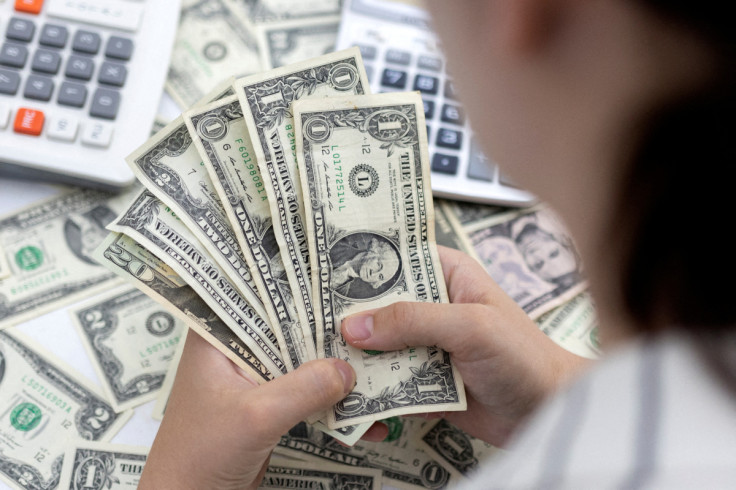Dollar Firms As Investors Brace For Higher-for-longer Rates Scenario

The dollar stood near a seven-week high against the euro and the Aussie on Thursday, as expectations the Federal Reserve is likely to stay on its aggressive rate-hike path, reinforced by minutes from its last policy meeting, set the tone for markets.
Nearly all Fed policymakers favoured a scale down in the pace of interest rate hikes at the U.S. central bank's last policy meeting, minutes from the Jan. 31-Feb. 1 FOMC meeting showed on Wednesday.
However, they also indicated curbing unacceptably high inflation would be the "key factor" in how much further rates need to rise.
The dollar paused its ascent on Thursday after gaining broadly on the back of the release.
The euro edged marginally higher to $1.0608 on Thursday, but was pinned near a roughly seven-week trough of $1.0598 hit in the previous session.
Similarly, the Aussie rose 0.15% to $0.6815, after falling more than 0.7% on Wednesday, further pressured by a miss in forecasts for Australian wage growth last quarter.
Trading was thinned on Thursday with markets in Japan closed for a holiday.
"The meeting minutes were pretty much within expectations ... the markets are now pricing for higher-for-longer rates," said Tina Teng, market analyst at CMC Markets.
"The resilience (of the U.S. economy) prompts the Fed to keep raising interest rates ... pushing up the U.S. dollar."
Elsewhere, sterling steadied at $1.2046 after its 0.6% slide in the previous session, while the New Zealand dollar rose 0.1% to $0.6226.
The kiwi continued to draw some support from the Reserve Bank of New Zealand's hawkish rate rise on Wednesday, after the central bank signalled further tightening ahead to tame high inflation.
Against a basket of currencies, the U.S. dollar index stood at 104.50, and was attempting to break a more than one-month peak of 104.67 hit last week.
"The Fed is likely to stick with the majority view of 25bp hikes, but the question is for how long," said strategists at Macquarie.
"We expect that the answer will remain much more highly dependent on the inflation data than the unemployment rate data, insofar as the Fed can always rationalise a low unemployment rate as the result of greater matching efficiency between employers and workers seeking to fill job openings."
In Asia, the Japanese yen edged higher to 134.83 per dollar, with eyes now on incoming Bank of Japan (BOJ) Governor Kazuo Ueda's speeches.
Ueda will speak in parliament on Friday and next Monday, and could potentially offer some clues on how soon the BOJ could end its bond yield control policy.
© Copyright Thomson Reuters 2024. All rights reserved.











